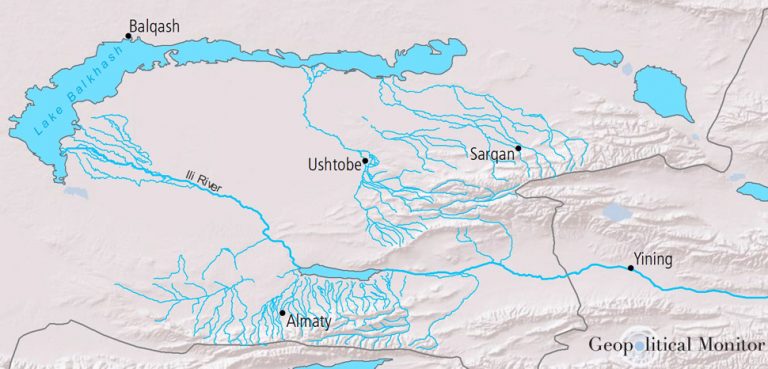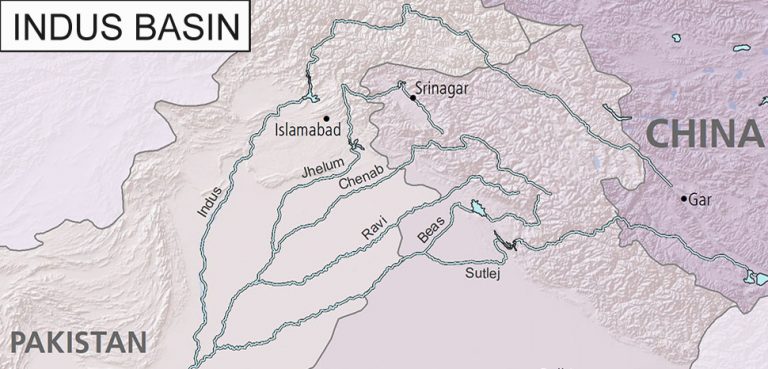Asia is rapidly evolving into the main driver of international development of the 21st century, both in terms of its economic potential and impact on world politics. With its ample human and natural resources, as well as rich cultural diversity and heritage, the continent has had a strong influence on global processes for millennia.
As new challenges to peace and security arise, it becomes increasingly clear that the Asian continent, where the most dynamic political and economic changes are taking place, has a new and in many ways central role to play in the modern world order.
As the largest region in the world, Asia must and will inevitably become a strong commonwealth of nations, pursuing shared goals, solving its own internal problems, and contributing to universal peace, security, and global progress.
Currently, at a time of geopolitical fracture and sweeping paradigm shift in security, multilateralism and inclusiveness have become the only possible approach to peace and stability at the regional and global levels. In this context, the Conference on Interaction and Confidence Building Measures in Asia (CICA), as an intergovernmental forum with the widest geographical coverage in the Asian region and a broad agenda, is the most appropriate platform to consolidate the collective wisdom of all Asian countries for peace, cooperation, security and development, and to fully integrate them into the global security architecture and multilateral decision-making processes of global importance.
The establishment of CICA as a single platform for pan-Asian dialogue on common regional issues was an objective necessity in the context of the progressive globalization, surging economic development, growing population and needs for food and energy resources in Asia, as well as worsening non-traditional challenges and threats amidst ongoing sub-regional and local conflicts.
Today, CICA unites 28 states covering more than 90 percent of the territory of the largest and most densely populated continent of the planet; it is a unique multilateral dialogue platform providing its member states – all of which have different political, economic, and socio-cultural backgrounds – with equal opportunities for cooperation to implement mutually beneficial initiatives and make decisions based on mutual consent.
The Sixth CICA Summit held in Astana in 2022, the 30th anniversary of CICA, launched a structured, inclusive and transparent negotiation process of gradual, incremental and consensus-based transformation of CICA into a full-fledged international regional organization. This historic decision was preceded by extensive consultations among the member states, which recognized that the forum had successfully served as an effective multilateral mechanism for interaction, confidence building and cooperation with a mature and permanent institutional structure.
Over three decades of evolution, CICA has acquired the status, role, structure, functions, modus operandi, and other features of a full-fledged international organization: founding documents outlining common goals and basic principles of relations between the member states; structure of governing bodies; executive body – the Secretariat; permanent advisory bodies and cooperation mechanisms – the Business Council, Youth Council, Think Tank Forum (TTF), Council of Eminent Persons, and CICA Fund; legal capacity – Convention on the Privileges and Immunities; and financial and human resource management mechanisms.
Therefore, the first step in the transformation process was the decisions of the Sixth Summit to institutionalize the highest governing bodies of CICA into the Council of Heads of State or Government and the Council of Ministers of Foreign Affairs and to establish the post of CICA Secretary General, formerly named “Executive Director of the CICA Secretariat.”
On behalf of the Summit, the Kazakh Chairmanship and the CICA Secretariat together with the member states developed a draft ‘Road Map for Transformation’ with specific directions of the forthcoming reforms, which is expected to be endorsed at an extraordinary meeting of the CICA Council of Ministers of Foreign Affairs in New York on the sidelines of the UN General Assembly this September.
Furthermore, the Sixth Summit adopted a common vision of the member states, that the Organization would contribute to the dynamic, equitable, comprehensive and balanced economic growth, interaction, social and cultural development of its member states
CICA leaders also resolved that they would strengthen their collective work within the Organization in order to seek joint solutions for common challenges of the twenty first century towards a secure and prosperous region and to pursue peaceful settlement of disputes in accordance with the UN Charter.
Since its establishment, CICA’s main area of activity has been confidence building measures in the five dimensions of cooperation: military-political, economic, environmental, human, and new challenges and threats, with some 30 activities held annually. All CICA confidence building measures in these five dimensions are reflected in the CICA Catalogue of Confidence Building Measures and are divided into 18 priority areas, cooperation in which is coordinated by individual states. To date, there are 17 coordinators and 23 co-coordinators.
The Catalogue of Confidence Building Measures is a one-of-a-kind document for the Asian region, which established, by consensus of all member states, the principles of voluntariness and gradualness in the practical implementation of confidence building measures, taking into account the diversity and special characteristics of different regions of Asia. First approved in 2004, it was substantially updated and expanded in 2021 at the last CICA Meeting of Ministers of Foreign Affairs.
CICA on Economic and Development Issues
The economic dimension of CICA is one of the most sought-after areas of cooperation among the Member states. That said, many aspects of interaction are cross-sectoral and closely intertwined with the issues of environment, social development, and humanitarian interaction.
CICA Member states are creating new opportunities for the development of small and medium businesses, the financial sector, strengthening new sources of investment, establishing transit and transportation corridors, sharing best practices in agriculture, as well as in energy security and information technology. Significantly, CICA is most active in the development of small and medium enterprises (SMEs), agriculture, finance, and digitalization.
It is for a good reason that one of the first two permanent institutions established by CICA in 2014 was the CICA Business Council, which includes representatives of business associations and government agencies of the member states. This institution is responsible for promoting the development and expansion of economic relations of SMEs and meets annually, convening the CICA Business Forum as part of its meetings.
For instance, the 2021 Business Council and Business Forum meeting was devoted to business prospects in the context of the pandemic, with a focus on food production, including deep-processed grains, oil crops, meat and dairy products, as well as construction materials. In 2022, the discussion was centered on digitalization of SME business processes and food security. The next meeting of the CICA Business Council and its Business Forum will be held in the autumn of 2023 on the sidelines of the Almaty Investment Forum, and will discuss green finance, renewable energy, and food security.
New challenges in the global economy, including supply chain disruption, have highlighted the underdeveloped connectivity of the CICA member states. In this regard, the Kazakh Chairmanship, during the Sixth Summit, initiated the establishment of the CICA Council on Sustainable Connectivity. The ambitious objective of this Council aims to develop and strengthen the transit and transport potential and transportation corridors of the CICA Member states, whose geography stretches from the Pacific Ocean to the Mediterranean Sea and from the Arctic Ocean to the Indian Ocean. The Chairmanship and the Secretariat are currently finalizing the concept paper for this new CICA body for subsequent discussion by all member states.
At the Sixth CICA Summit, President of Kazakhstan Kassym-Jomart Tokayev also proposed to transform the CICA Finance Summit into a permanent platform. Formerly, it had been initiated and successfully convened as a conference on three occasions since 2018 by the People’s Republic of China at the China Association for the Promotion of Development Financing. This new CICA institution should focus on promoting sustainable and inclusive development and creating an enabling environment for regional and subregional financial cooperation within the Organization. The Chinese side, together with the Chairmanship and with the assistance of the Secretariat, is in the process of finalizing the concept paper to institutionalize this forum. The next meeting of the Finance Summit will be held in late 2023 in China.
Cooperation among the CICA Member states in the environmental dimension has also become increasingly sought-after in recent years. Recognizing the urgent need to address environmental issues, CICA is committed to protecting the environment, achieving carbon neutrality, and promoting cooperation on food security. At the Sixth CICA Summit, President of Kazakhstan Kassym-Jomart Tokayev proposed to hold a High-level Conference on Environmental Issues of CICA Countries in Astana in 2024 to discuss climate change in the CICA region and ways to address it.
It is assumed that this event will become a starting point for the creation of working groups to substantively discuss environmental problems in the CICA region. The Conference will help CICA member states set goals and methods for solving specific regional problems, while reaffirming their commitment to the UN Sustainable Development Goals. The Conference can also contribute to developing a sense of ownership over and commitment to the achievement of goals, which will raise environmental issues to a higher level in the list of national priorities. It is expected that the Conference will build a foundation for the establishment of the CICA Environmental Council.
People-to-people Connections
Within the human dimension, the member states actively interact on a wide range of humanitarian issues, including respect for human rights, promotion of dialogue among civilizations, cultures and religions of Asia, empowerment of women and girls, cooperate within the framework of the CICA Youth Council – the very first permanent CICA institute established in 2014, as well as in the fields of science and education.
This year, at the initiative of Kazakhstan, work has been launched to create a Partnership Network of Leading Universities of the CICA member states. It is expected that this network will facilitate academic exchange, joint research projects, and cooperation programs among universities of the entire region. The concept paper of the Partnership Network was discussed by experts of the member states in May 2023, and work is currently underway on a memorandum on the establishment of this new mechanism of cooperation within the framework of CICA.
Recognizing the strength and potential of the youth and volunteering, which is also highly appreciated within the framework of the UN, the Kazakh Chairmanship intends to hold a CICA Rally of Volunteer Movement Leaders in 2024 in Astana under the auspices of the CICA Youth Council. This event will bring together young leaders from the Member states to exchange ideas, experiences and best practices in the field of volunteering and community engagement.
The importance and relevance of this area of cooperation are reflected in the draft statement of the CICA Ministerial Council on the promotion of volunteering for sustainable development, which is expected to be adopted in September 2023.
Combating Shared Threats
The era of globalization clearly demonstrates the need for close cooperation in the fight against common threats, such as terrorism, illegal migration, drug trafficking. In turn, the Covid-19 pandemic has shown how important it is for all countries of the world to stay united and act together to eliminate the epidemic and coordinate on health issues on a global scale.
That is why in 2021 the updated CICA Catalogue of Confidence Building Measures at the initiative of Kazakhstan was supplemented by a new priority area “Epidemiological Safety, Public Health and Pharmaceuticals,” which called upon the member states to continue interaction in countering new epidemiological challenges and threats. In February 2021, the Kazakh Chairmanship, together with the Halyk Charity Foundation, transferred humanitarian aid to a number of CICA Member states in need to combat coronavirus infection.
In 2021, a new priority area “Security of and in the Use of Information and Communication Technologies (ICT)” was also included in the updated Catalogue of Confidence Building Measures at the initiative of Russia and China, and in 2022 the Summit adopted a joint statement by the leaders of the CICA Member states in this domain, which gave a political impetus to strengthening solidarity and practical cooperation of the CICA states in this new priority area with equal emphasis on development and security. The document emphasizes the desire of the CICA countries to bring together approaches to ensuring the security of ICTs and to develop cooperation on the basis of the UN Charter and the principles of international law, as well as to actively participate in the work of the relevant UN Open-ended Working Group and in the development of a comprehensive international convention under the auspices of the UN.
A historic achievement of CICA in the field of combating terrorism was the adoption by the Sixth CICA Summit of the CICA Plan of Action on the Implementation of the United Nations Global Counter-Terrorism Strategy. The Kazakh Chairmanship and the Secretariat gave a new impetus to the multi-year negotiations on this document, which made it possible to reach a consensus on all open issues by the Anniversary CICA Summit in 2022. This document reflects the determination of the CICA member states to fulfil their obligations and take actions to combat terrorism, agreed upon under the auspices of the UN, within the framework of cooperation in the CICA region and at the national level.
In the military-political dimension, in order to strengthen dialogue, trust and cooperation, CICA provides its member states with mechanisms for exchanging information on arms control issues, holding consultations on unexpected and dangerous military incidents, especially if they occur near their borders, monitoring military exercises and other forms of cooperation between the armed forces.
In order to strengthen peace, stability and security in the region, the Republic of Kazakhstan annually holds a seminar on the military-political dimension as the coordinating country in this priority area. Thus, representatives of the defence and security agencies of the CICA countries maintain contacts and regularly exchange publicly available data, thereby strengthening trust and establishing interaction.
CICA member states, within the framework of their political dialogue, support and promote global instruments related to nuclear non-proliferation and disarmament, such as the Treaty on the Non-Proliferation of Nuclear Weapons, which is a vivid example of CICA’s interest and readiness to contribute to strengthening global security and promoting the values and principles of the UN Charter and international norms.
An important contribution to the strengthening of peace and stability in Asia, as well as political and expert dialogue between the CICA member states, will be made by the new CICA advisory bodies established in 2021 – the Council of Eminent Persons and the TTF. The TTF was initiated by the People’s Republic of China in 2014 and was transformed into a permanent institute of CICA by a decision of the member states in 2021. The TTF Chair currently is the Shanghai Institutes for International Studies (SIIS). Thanks to this platform, high-quality cooperation is being established among the think tanks of the CICA member states. The status of the Forum and the composition of its participants make it possible to consider an almost unlimited range of issues, and the ideas and recommendations developed by the TTF analysts have great potential for study by the member states and the CICA governing bodies and transition into concrete actions and solutions.
The increased relevance of CICA as a platform for dialogue and confidence building in recent years has been reflected in the growing interest of its member states to further enhance the practical impact of cooperation within the organization.
In this regard, at the initiative of the Kazakh Chairmanship, in order to develop the CICA project activities, the Sixth Summit established the CICA Fund, which is a mechanism for providing financial aid from member states to each other. The CICA Fund will contribute to the development and financing of specific projects in a wide range of areas, including development goals, implementation of confidence building measures, research and scientific activities, and humanitarian aid.
All the areas of cooperation and instruments of interaction of the CICA member states briefly listed above indicate the increased relevance and potential of CICA, as well as the interest of the member states in promoting the forum in synergy with the implementation of their national priorities in Asia, which ultimately contributes to strengthening collective security at the regional and global levels.
***Ambassador Kairat Sarybay is Secretary General of CICA.
The views expressed in this article belong to the authors alone and do not necessarily reflect those of Geopoliticalmonitor.com.




